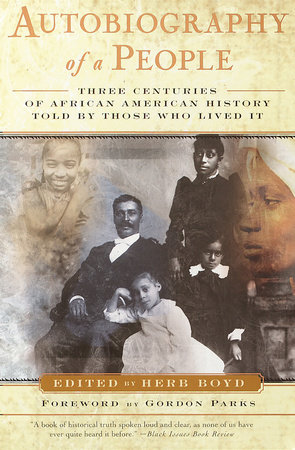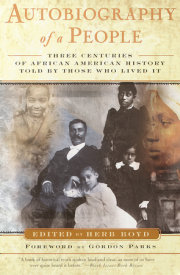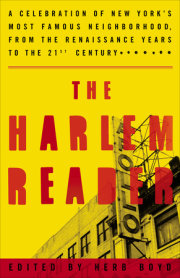Pre-Revolutionary VoicesAfrican captives, ruthlessly torn from their homeland, registered their complaint in a number of ways, most violently in countless mutinies aboard the slave ships that plied the Atlantic during the brutal Middle Passage. Much of what we know of these bloody episodes has been distilled from the logs and journals of the slave captains, particularly such notorious slavers as Captain Canot, John Hawkins, and John Newton.
These records, however, provide scarcely any information about African tribal life or the circumstances of the captives before they were marched off to the coastal fortresses and subsequently crammed into the fetid holds of the ships. It is from a few priceless slave narratives that we gather some notion of what village life was like in certain regions of West Africa in the latter part of the eighteenth century. James Albert (Ukawsaw Gronniosaw) was the rambunctious grandson of the King of Bornu. From his narrative we are afforded a brief glimpse of African life and the events that led to his captivity. A restless and inquisitive young man, Gronniosaw's preoccupation with the existence of a Supreme Being will follow and sustain him throughout his ordeal. As we will see in many of the selections in this book, God and religion are common topics for an oppressed people seeking liberation.
Olaudah Equiano also credits the Creator for helping him survive the hellish experience of being sold into slavery. Equiano, who also went by the name Gustavus Vassa, wrote perhaps the most anthologized slave narrative. His vivid reminiscence of village life in his native Guinea is hardly exhaustive but does give the reader an excellent idea of the African life so many were forced to leave behind. Among his most remarkable and painful stories is the one included here, which tells of the horrors he witnessed aboard the slave ship that carried him from his homeland.
Although Phillis Wheatley was also born in Africa, she never wrote a slave narrative. Her two most famous poems signify a complex but conflicted writer who was ambiguous about her African heritage. While it is not certain why she began to write poetry, it may have been to emulate Alexander Pope and other favorites from the neoclassical tradition. Her critics contend she failed to express a stronger concern for the plight of her people; her supporters that it is necessary to read between the lines to detect her subversive intentions. Whatever the case, we cannot ignore the role she played as a literary pioneer.
Noted for being America's first black preacher to an all-white congregation, Lemuel Haynes wrote the "ballad" that follows in a burst of patriotic pride. Though he did not participate in the Battle of Lexington, he hurried to the scene shortly after it occurred. Unwavering in his critique of slavery, he often noted the hypocrisy of slaveholders protesting British oppression. Even now, 225 years later, the defiant message of Haynes's poem (shortened for this book) still resonates with power and conviction.
More than five thousand African Americans fought in the Revolutionary War, and a good number of them--Peter Salem, Salem Poor, Barzillai Lew, and Pomp Blackman--did so with great honor. Unfortunately, distinguishing themselves on the battlefield did not automatically confer citizenship to the veterans and their families. Many petitions were launched by African Americans such as John and Paul Cuffe and others in 1780, asserting "no taxation without representation." By 1815, the latter Cuffe, a prosperous ship owner, had given up on the States and become an ardent colonizationist and at his own expense transported thirty-eight African Americans to Sierra Leone, many of whom worked as missionaries.
James Albert Ukawsaw GronniosawFrom A Narrative of the Most Remarkable Particulars in the Life of James Albert Ukawsaw Gronniosaw, An African Prince, Written by Himself
AFRICA AND NEW YORK, 1720-1730
I WAS BORN IN THE CITY OF BAURNOU, my mother was the eldest daughter of the reigning King there. I was the youngest of six children, and particularly loved by my mother, and my grand-father almost doated on me.
I had, from my infancy, a curious turn of mind; was more grave and reserved, in my disposition, than either of my brothers and sisters, I often teazed them with questions they could not answer; for which reason they disliked me, as they supposed that I was either foolish or insane. 'Twas certain that I was, at times, very unhappy in myself: It being strongly impressed on my mind that there was some GREAT MAN of power which resided above the sun, moon and stars, the objects of our worship.--My dear, indulgent mother would bear more with me than any of my friends beside.--I often raised my hand to heaven, and asked her who lived there? Was much dissatisfied when she told me the sun, moon and stars, being persuaded, in my own mind, that there must be some Superior Power.--I was frequently lost in wonder at the works of the creation: Was afraid, and uneasy, and restless, but could not tell for what. I wanted to be informed of things that no person could tell me; and was always dissatisfied.--These wonderful impressions began in my childhood, and followed me continuously till I left my parents, which affords me matter of admiration and thankfulness.
To this moment I grew more and more uneasy every day, insomuch that one Saturday (which is the day on which we kept our sabbath) I laboured under anxieties and fears that cannot be expressed; and, what is more extraordinary, I could not give a reason for it.----I rose, as our custom is, about three o'clock (as we are obliged to be at our place of worship an hour before the sun rise) we say nothing in our worship, but continue on our knees with our hands held up, observing a strict silence till the sun is at a certain height, which I suppose to be about 10 or 11 o'clock in England: When, at a certain sign made by the Priest, we get up (our duty being over) and disperse to our different houses.--Our place of meeting is under a large palm tree; we divide ourselves into many congregations; as it is impossible for the same tree to cover the inhabitants of the whole city, though they are extremely large, high and majestic; the beauty and usefulness of them are not to be described; they supply the inhabitants of the country with meat, drink and clothes; the body of the palm tree is very large; at a certain season of the year they tap it, and bring vessels to receive the wine, of which they draw great quantities, the quality of which is very delicious: The leaves of this tree are of a silky nature; they are large and soft; when they are dried and pulled to pieces, it has much the same appearance as the English flax, and the inhabitants of Bournou manufacture it for clothing, &c. This tree likewise produces a plant, or substance, which has the appearance of a cabbage, and very like it, in taste almost the same: It grows between the branches. Also the palm tree produces a nut, something like a cocoa, which contains a kernel, in which is a large quantity of milk, very pleasant to the taste: The shell is of a hard substance, and of a very beautiful appearance, and serves for basons, bowls, &c. . . .
About this time there came a merchant from the Gold Coast (the third city in Guinea) he traded with the inhabitants of our country in ivory, &c. he took great notice of my unhappy situation, and inquired into the cause; he expressed vast concern for me, and said, if my parents would part with me for a little while, and let him take me home with him, it would be of more service to me than any thing they could do for me.--He told me that if I would go with him I should see houses with wings to them walk upon the water, and should also see the white folks; and that he had many sons of my age, which should be my companions; and he added to all this that he would bring me safe back again soon.--I was highly pleased with the account of this strange place, and was very desirous of going. . . .
. All rights reserved. No part of this excerpt may be reproduced or reprinted without permission in writing from the publisher.





